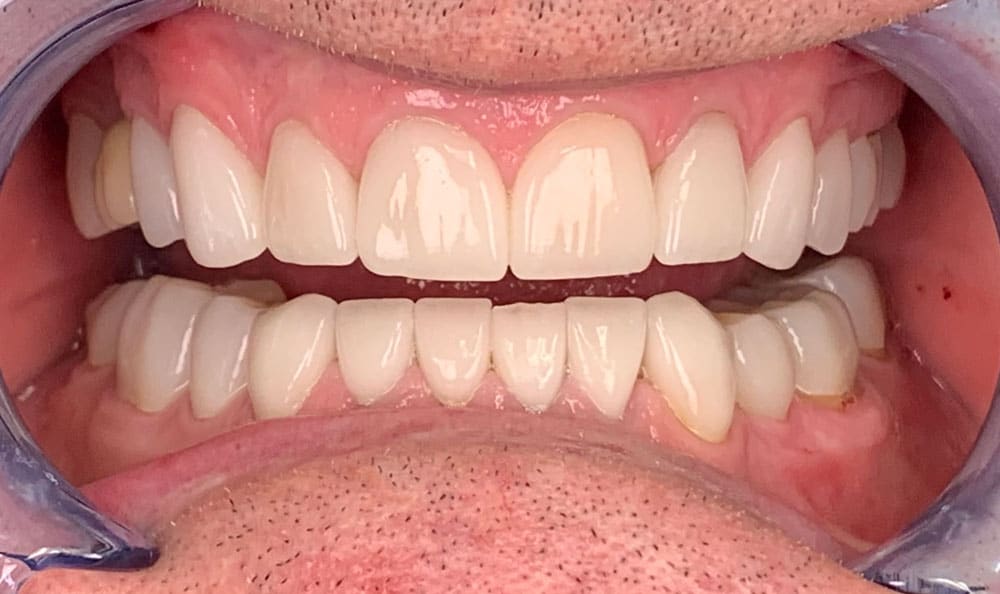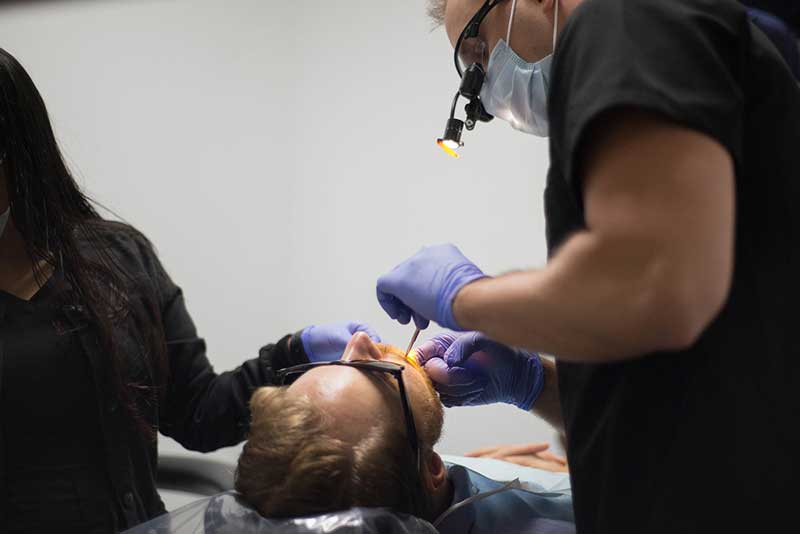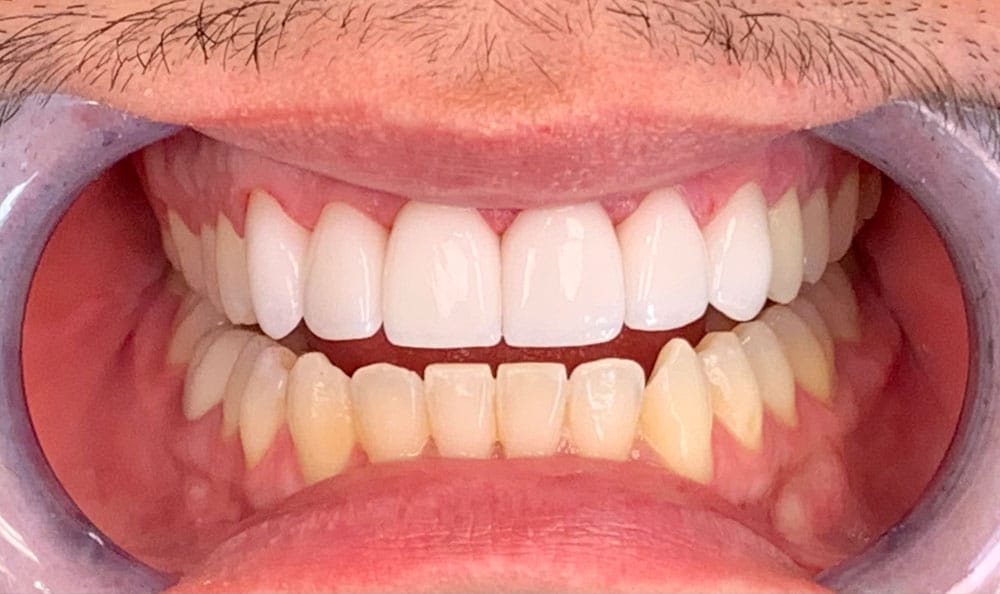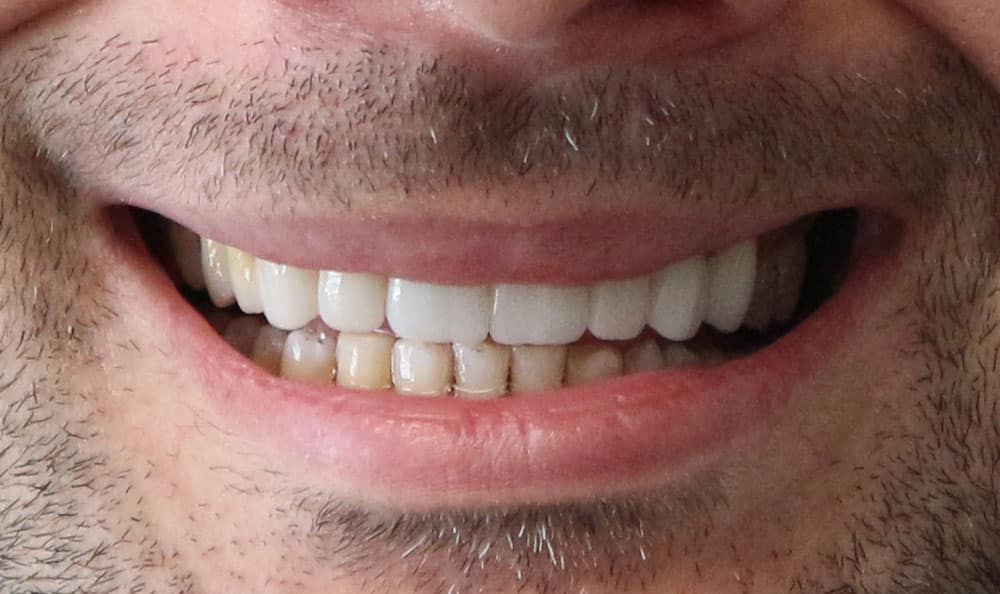Introduction
Root canal plays a significant role in saving smiles, but you need to understand the role of oral dental care and overall health to achieve an aesthetic and pearly white smile. Root canal treatment is a common dental procedure that dentists use to preserve existing natural teeth. During this procedure, a skilled dentist removes plaque and tartar buildup in the gum line housing nerves and blood vessels. The main aim of this dental procedure is to alleviate pain and protect surrounding teeth from spreading infections and developing bacteria. So, you don't have to worry about the pain and discomfort as it works like a game changer for your teeth to keep them strong and healthy.
What Exactly is a Root Canal?
Many people struggle to get to know What is a root canal. A root canal is a dental procedure specifically designed to protect a tooth from decay, damage, or infections. It generally lies at the centre of the teeth. However, the pulp houses nerves and blood vessels. When this pulp gets collected at the tooth's center, it increases the risk of developing tooth decay and periodontal and gum diseases. This is a stage when a root canal becomes essential to protect the surrounding teeth from severe damage or infections.

Why People Need Root Canal Treatment?
Root canals are essential to alleviate tooth pain caused by infection or inflammation, preserving natural teeth and preventing infections from spreading to neighboring teeth. They not only relieve discomfort but also ensure functionality and aesthetics, promoting overall oral health and other complex diseases like oral cancer, herpes, etc. Getting treatment at an early stage helps protect a smile and maintain a healthy, natural set of teeth.
Root Canal Treatment PostCare Tips
Just after the completion of root canal treatment, it is essential to follow proper, effective preventive measures for quick relief and maintaining oral care. You need to keep in mind the following tips:-
Restrict with soft food items
Restrict yourself and eat only soft food items (like khichdi or up) in the starting days and avoid putting extra pressure on the treated teeth. You can gradually shift to harder food items as your dentist only recommends.
Take Prescribed Medications
Consider your Dentist Near Me advice only when using antibiotics or painkillers. These medications help in managing discomfort and potential infections.

Follow Oral Care Practices
Maintain oral healthcare practices by flossing and brushing to keep your gums and teeth healthy. Use only a soft bristle toothbrush and gently apply the pressure in the affected area.
Follow Up Appointments
Visit 24 Hour Emergency Dentist for regular checkups and appointments to crosscheck the recovery of the affected area and adhere to resolve issues promptly.
Avoid Using Excessive Hot or Cold Items
Avoid consuming excessive hot or cold items to keep root canal treatment long-lasting as it protects from tooth sensitivity.
Wrapping It Up
Some people get worried about the root canal procedure, but they need to know the basic concepts to address their issues. Don't put an unnecessary load on your mind because this is quite a common dental treatment. If you may experience pain and discomfort during and after the procedure, you must visit 24 Hour Emergency Dentist immediately and discuss your issues with them. To make the process accessible and smoother, the dentist applies a particular fluoride solution to the infected area that can last just a few minutes.
Introduction
When you hear the term root canal for the first time in your life, you may start creating a picture in your mind and start thinking about pain and discomfort. But you need to understand how important this is for your oral and overall health for getting an appealing smile and pearly white teeth. A root canal is a common dental procedure that is often used to protect the existing natural teeth. A Root Canal specialist has years of experience and has handled various cases in the same field.
Symptoms Indicating You Need A Root Canal
Toothache, periodontitis, and misalignment of teeth are inevitable guests that worsen dental conditions over time. Tooth sensitivity while consuming or chewing hot or cold food items, swollen gums, persistent tooth pain, and stained teeth give you signals that you now need a root canal treatment. If you experience any of these symptoms, you must take advice from the dentist immediately without wasting time. It is worth mentioning that root canal recovery time may vary from person to person, depending on how healthy an individual is and its severity.

Purpose of Root Canal Treatment
The root canal treatment aims to protect the surrounding teeth from damage and save a tooth from extraction. The risk of developing bacteria or infection may be enhanced when the pulp accumulates inside teeth. If not treated on time, the infection or bacteria affects nearby teeth, causing more severe health and dental issues.
Maintaining proper oral functions and, protecting yourself from bite problems and shifting teeth from their actual position is essential in addition to preserving natural teeth.
Why Dental Professionals Consider Root Canal Effective Treatment?
Root canal is one of the effective dental solutions for tooth decay and periodontitis. The following are the reasons that are resolved by following:-
Preserve Natural Teeth
Root canal is a dental treatment aiming to save a natural tooth. Furthermore, this helps maintain the integrity of the dental arch and saves spending a hefty amount of money.
Pain Relief
Root canals are often used for pain relief, as they remove the infected pulp, allowing the patient to return to a pain-free lifestyle.

Protect From Spreading Infection
Dental professionals clean and seal teeth during root canal treatment, protecting individuals from spreading infections to surrounding areas. This plays a significant role in dental treatment and prevents individuals from severe oral health issues.
Improved oral function
Root canal treatment is a method that helps patients maintain their natural teeth, enabling them to continue chewing, speaking, and smiling confidently while preventing tooth loss issues.
Wrapping it up
A root canal may sound complex, but this is considered an effective dental treatment aiming to protect natural teeth and alleviate pain and discomfort. With dental advancements and anaesthesia, the procedure is simplified and comfortable, enabling professionals to perform the treatment smoothly and efficiently. It has now become a reliable solution for a healthy and functional smile. Visit Emergency Dental Clinic when you don't get relief from pain and swelling even after treatment.
Introduction
Dealing with wisdom teeth is challenging for some people, while others may experience discomfort, pain or sensitivity, precisely when chewing or drinking anything. Wisdom teeth are the third set of molars located at the back of your mouth that often develop in late teens or early adulthood, which can bring some unbearable pain. Pain can be troublesome to some people because they don’t get enough space or room to settle a third set of molars. This is the only reason for various dental problems, which include pain, discomfort, and swelling.
For proper guidance and wellness, it’s best to consult a healthcare expert to gather as much as information about wisdom tooth pain.
Symptoms
Wisdom teeth not only cause symptoms, but when they get infected, they also start damaging the surrounding areas or nearby teeth, which enhances the risk of developing other severe dental problems. Some of the wisdom tooth pain symptoms are mentioned below:-

- Red or swollen gums
- Bleeding from gums
- Jaw pain
- Swelling around the jaw
- Consistent Bad breath
- An unpleasant taste in your mouth
- May experience difficulty in opening mouth
Effective Home Remedies To Get Relief From Wisdom Tooth Pain
Saltwater Rinse
If you’re dealing with persistent wisdom tooth pain, salt water rinse is one of the effective home treatments to eliminate this. Take a glassful of lukewarm water and mix a teaspoon of salt in it. Mix them well and use this solution for rinsing a mouthwash. This effective home care remedy helps reduce inflammation and works like an antiseptic solution that provides wisdom tooth pain relief.
Clove Oil
Clove oil contains numbing properties that have been used since ancient times to relieve dental pain. Put a few drops of olive oil in a cotton ball, place that ball in the affected region, and leave it for a few minutes, though it helps reduce pain and inflammation.
Ice Pack
A cold compress or an ice pack can provide instant relief from wisdom tooth pain. Place a cold compression or an ice pack on the outside of your cheek in the affected region for around 15 minutes. It helps in numbing or swelling and temporarily relieves pain and discomfort.

Peppermint Tea
Anti-inflammatory properties in Peppermint tea help individuals soothe their gums. Make a cup of peppermint tea, let them keep aside for cooling down, and gently apply it to your affected area. Later on, spit it out after a few minutes.
Over-the-Counter Pain Relief
Acetaminophen or ibuprofen are painkillers that you can get from any medical shop without any prescription. These drugs will reduce your pain and discomfort to some extent. Follow the dosage instructions a dental professional recommends, especially when you have any pre-existing medical conditions or issues.
Wrapping It Up
You can manage and address the wisdom tooth pain while listening to your body and seeking professional guidance when required. Whether you’re looking for home remedies or seeking advice from dental experts, it transforms a complete smile makeover and a comfortable journey into adulthood. Many people enquire about how long does wisdom tooth pain last. Wisdom tooth pain duration may vary from person to person or on oral health conditions but typically lasts a few days to weeks.




